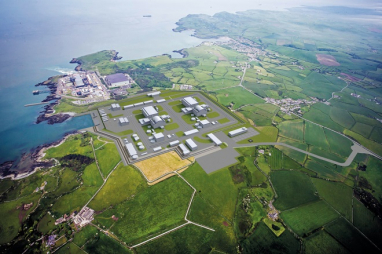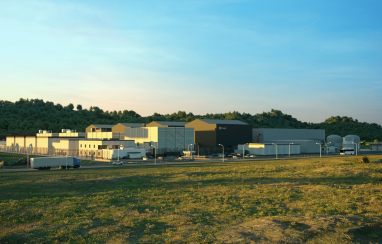- 300 - IetpShops - Air Jordan 1 High OG Celadon FB9934 , air jordan 1 retro high gg black hot lava
- Taylor Swift Sang Her Whole Setlist on the Treadmill Every Day
- NikeCourt Air Zoom GP Turbo CK7513 - 101 Release Date - SBD - 101 CK7580 - nike hyperdunk olympic white gold black hair
- nike sb varsity red dunks black and blue white
- nike air force 1 uv color change da8301 100 101 release date
- nike air force 1 low white gold dc2181 100 release date info
- air jordan 1 mid chicago 2020 554724 173
- air jordan 4 white tech grey black fire red ct8527 100 release date
- best nike basketball shoes
- air force 1 shadow
- Home
- News and analysis
- Info hubs
- Events
- Video
- Case Studies
- About us
- Magazine
- Advertising
Produced for the industry by the Association for Consultancy and Engineering
News
Hitachi suspends work on Anglesey’s £20bn Wylfa nuclear power station

Fresh doubt has been cast over the future of nuclear energy in the UK today as the Japanese firm Hitachi confirmed rumours it was bringing work on the £20bn scheme to a halt after discussions with the UK government over funding proved fruitless.
It now means that Hinkley Point power station in Somerset is the only new UK reactor still being built after engineering giant Toshiba confirmed in November that it was pulling out of £15bn plans to develop a new nuclear power station in Moorside, Cumbria.
The decision by Hitachi though is worrying news for Wales with it putting thousands of jobs at risk should the Wylfa Newydd plant be scrapped altogether. It was estimated that the construction workforce at the power station site would peak at around 9,000 with around 850 people employed during operation.
Formal discussions between Hitachi, the UK government and the government of Japan have broken down on the financial structure of the project to ensure it would deliver for both investors and the UK electricity consumer.
Hitachi said the decision would cost it an estimated 300bn yen (£2.1bn) in expenses, plus another 300bn yen as "extraordinary losses”. The statement by the firm added the decision was made “from the viewpoint of Hitachi’s economic rationality as a private enterprise”.
Tom Greatrex, chief executive of the Nuclear Industry Association, said Hitachi’s suspension of work was “disappointing, not just for the Wylfa Newydd project but for Anglesey and the nuclear industry as a whole”.
“It’s regrettable that this project has been suspended, especially as a considerable amount of groundwork has already taken place on the Wylfa project, including creating a supply chain to deliver the project,” he added. “Nuclear at Wylfa has with local support, and the Horizon project would provide 60 years of reliable, secure, low carbon power for homes, businesses and public services – with a strike price much below any offshore wind project generating power now and cost competitive with all low carbon generation. It is imperative that new nuclear at this site goes ahead and the barriers to that are removed.
Nuclear power plays an important role in UK energy mix, currently providing 21% of the UK’s electricity mix, and 40% of the low-carbon electricity generated in the UK.
Craig Hatch managing director, Surveying & Asset Management at WYG believes the distraction of Brexit has overshadowed all other areas and resulted in "no cohesive plan within the current UK energy policy".
"Nuclear power station projects are a critical element to ensuring the provision of a secure energy supply within the UK. These projects would have had significant socio economic benefits for the respective regions, something which both north Wales and west Cumbria desperately need. If the UK loses out on Wylfa and Moorside the impact will be detrimental, not only to the respective local economies, but also to the UK’s industrial strategy that relies on secure and affordable domestic energy supplies."
Civils contractors have today described the cancellation of a new nuclear power station at Wylfa in Wales as a “serious blow” to the UK’s future energy security.
CECA director of External Affairs Marie-Claude Hemming said it was now time for the UK government to act quickly to provide certainty, demonstrate its commitment to the nuclear sector.
“This is an extremely disappointing decision that throws doubts on the future energy security of the UK,” she added. “CECA has long campaigned for new nuclear as a vital component of the mixed portfolio of electricity generation Britain will rely upon in the coming years. New nuclear power remains the best way of ensuring a secure future supply of low-carbon base load energy that is not reliant on external factors such as the weather.”





